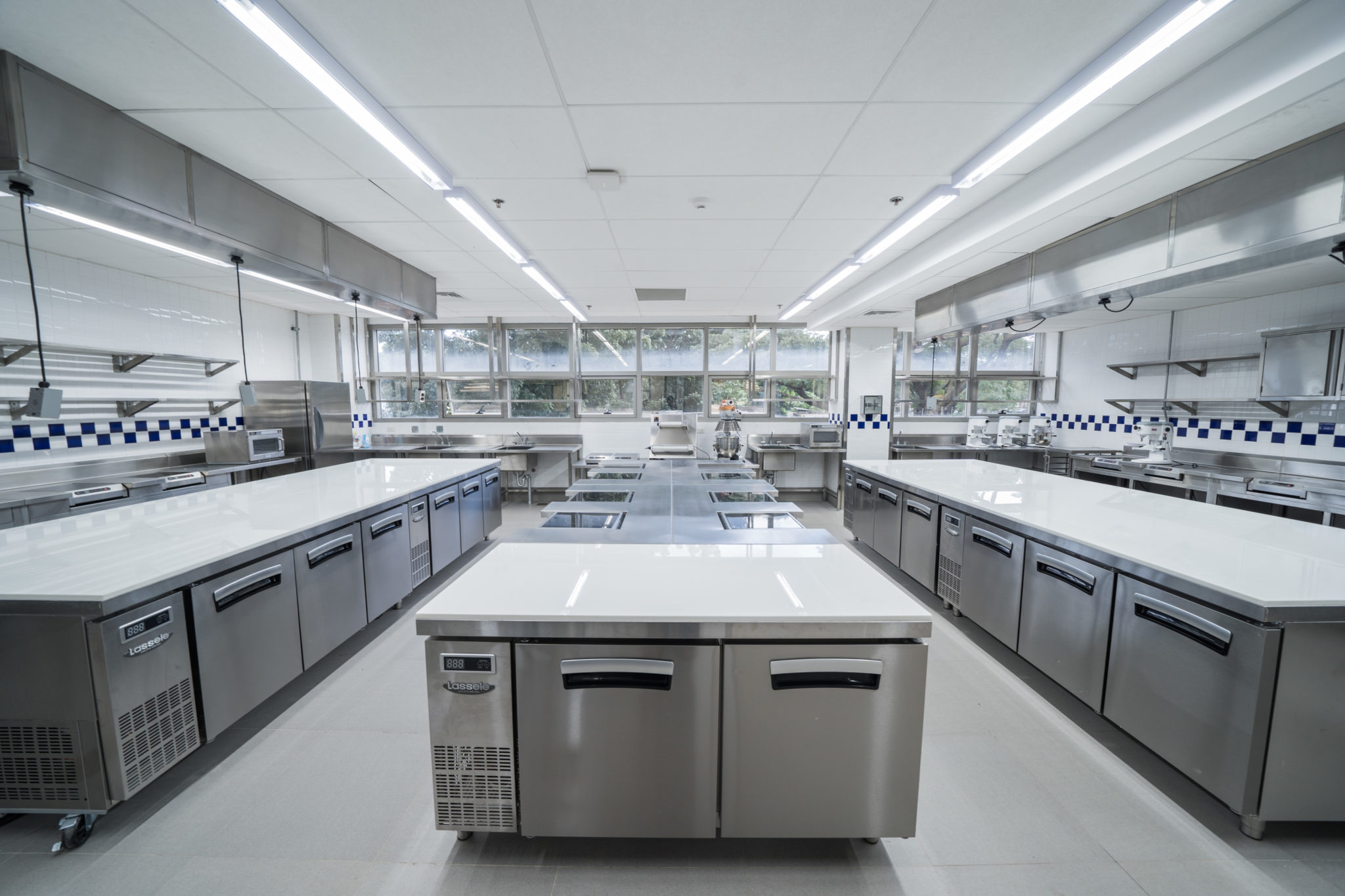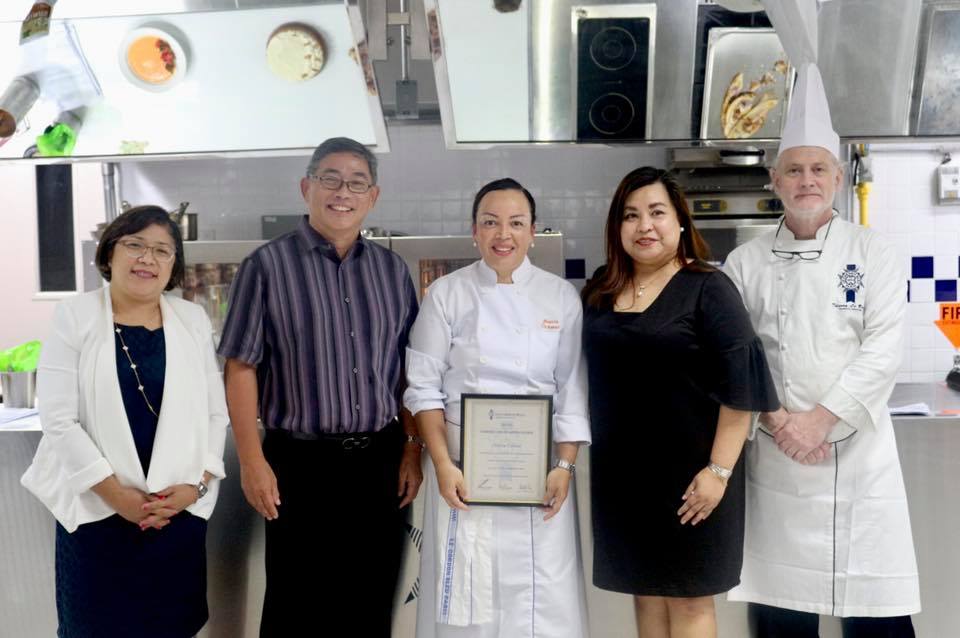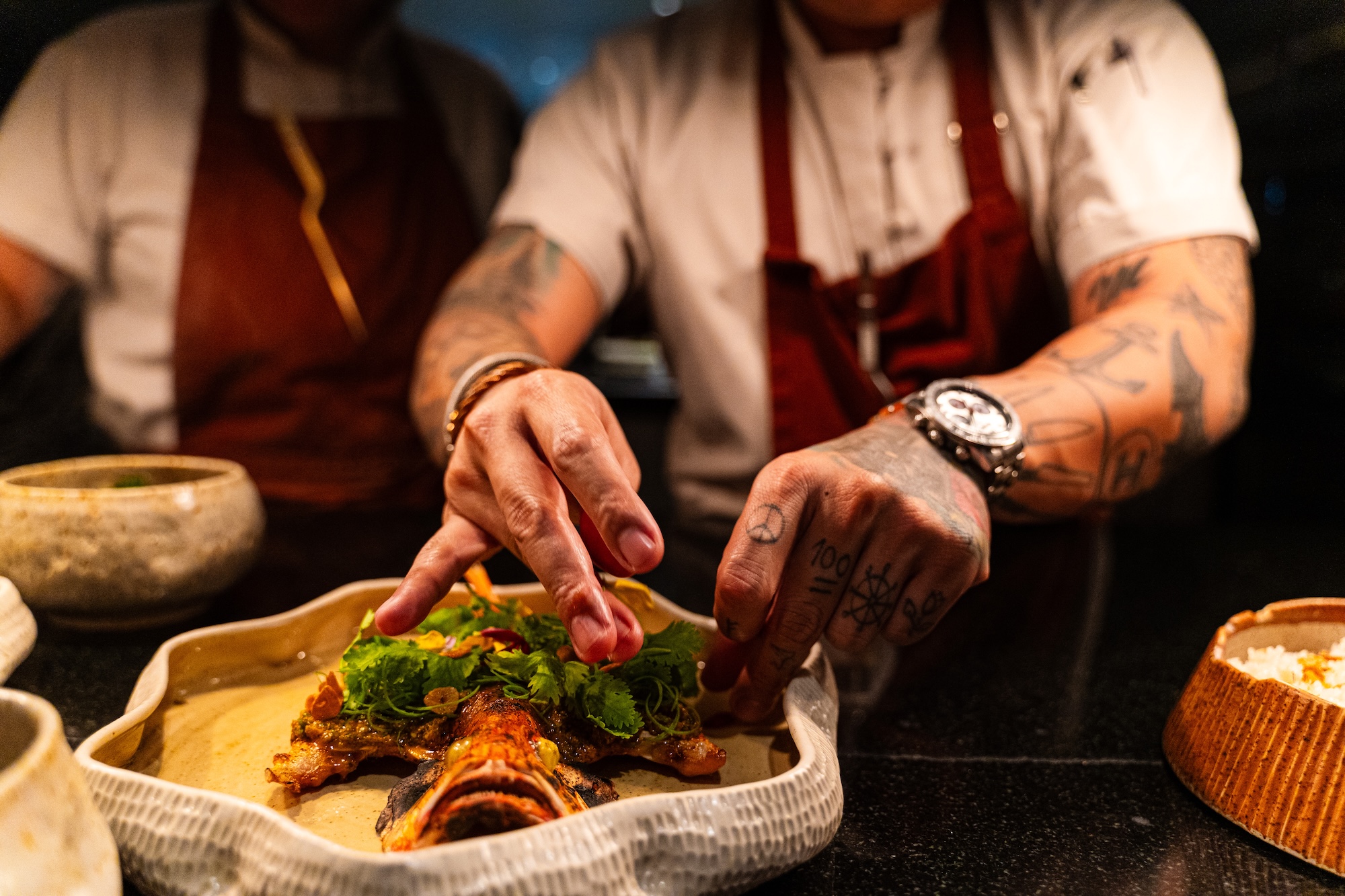In 1895, French journalist Marthe Distel decided to start a publication called The Cordon Bleu Cook (La Cuisinière Cordon Bleu in French). The initiative was born out of a mission to train women in the culinary arts, which, up until that point, was almost exclusively dominated by men. La Cuisinière Cordon Bleu was a success so Distel decided to offer her readers cooking lessons.
What then came out of that decision was the establishment of Le Cordon Bleu School of Culinary Arts in Paris in 1895, which eventually expanded into an international chain of hospitality and culinary schools in about 20 countries with tens of thousands of students of different nationalities.
But the success of the magazine and its resulting legacy of an institution ended up not only setting unprecedented standards and quality in culinary arts, they also made way for much-needed diversity in a field that was relatively exclusive, and accessibility to a cuisine that was—at least until 1895—elusive at best and intimidating at worst.
To this day, French cuisine holds a reputation that no other cuisine does but with the opening of the Le Cordon Bleu in Paris more than a hundred years ago, there’s now arguably a better and more widespread understanding of French cooking.
This is thanks in part to one of the school’s most notable alumni, Julia Child, who is credited for introducing French cooking to American cooks (most of them home cooks) via her groundbreaking two-volume book, “Mastering the Art of French Cooking.” Child’s books and television shows have done a great chunk of the work that spurred the popularization and subsequent demystification of French cuisine.
Some words of advice
Indeed, ubiquity—more precisely, popularization—plays a huge role in demystifying enigma. It’s a generic, almost passé thought (the late great Doreen Fernandez articulated a much better explanation, writing that “food [is] the most popular form of popular culture, created by the mass in their daily activity”), but that’s one of the many things that the alumni of the Le Cordon Bleu have lived by.
Last Sept. 16, the Le Cordon Bleu Ateneo de Manila Institute (LCBAI) welcomed its first Le Cordon Bleu Paris alumna to its kitchen in Areté. Chef Marcia Ochsner did a cooking demonstration that featured three recipes from her book “Cooking in the South of France: An Elegant View on Classic French Dishes,” which was prefaced and edited by The Le Cordon Bleu Paris.
“You need to really try to follow the instructions of the chefs and absorb as much as you can,” says Marcia Ochsner.
The demonstration itself was seamless, showcasing Ochsner’s effortless dexterity and proficiency in the kitchen, but more than anything it was her career story that arguably left the most impact—probably because the audience was made up mostly of culinary students. It’s no secret that the restaurant life can be physically and mentally taxing, and so, often, hearing the stories of professional chefs can be quite helpful.

Ochsner finished her education at the Le Cordon Bleu in three years, saying that there were days that went from 7 a.m. to 10 p.m. with only one 30-minute break. Her education was grueling, but she came out of it a better chef. She graduated top of her class and decided to write her first book. “You need to really try to follow the instructions of the chefs and absorb as much as you can.”
Ochsner wasn’t oblivious to the prestige of the institution that played a huge role in her training but she warned that students ought to be cautious of that reputation if they weren’t as serious about their education: “When you go to professional kitchens, you don’t say ‘Oh, I’m from the Le Cordon Bleu’ and think that you’re important. In fact if you make a single mistake, there’s more reason for other students to see fault in you. That’s why when you’re still studying, listen to the chefs.”
“When you go to professional kitchens, you don’t say ‘Oh, I’m from the Le Cordon Bleu’ and think that you’re important. In fact if you make a single mistake, there’s more reason for other students to see fault in you,” says Marcia Ochsner.
As for her book, Ochsner began working on it almost six years ago (she had to stop working on it for a while to get treatment for cancer). She says that she had a lot of help from the Le Cordon Bleu: “The school asked what I was doing after I completed my course because they want to keep track of their alumni. I told them I was writing a book and then they said they wanted to see it. I sent it to them and they loved it. They helped me edit it in a way that the procedures were really like what we were taught in school.”

Now Ochsner is doing a book tour around the Le Cordon Bleu’s different campuses.
“I’m very pleased to go to other schools to demonstrate something from the book and to talk to students and tell them that everything is possible to do in this lifetime. If you have a wish to do something, you just need to give your best. You need to have the right attitude, you need to learn in a kitchen and again, pay attention to the chef—listen to what they’re teaching you.”
LCBAI was formally inaugurated last Apr. 5. Its first facility occupies over 1,000 square meters on the ground floor of Areté. A teaching restaurant and wine bar are slated for opening later this year. A second facility is slated for construction in the latter half of 2019 and will sit on another 1,000 square meters, this time in the Ateneo Professional Schools building in Rockwell Center.
LCBAI offers a four-year undergraduate Bachelor of Science in Restaurant Entrepreneurship, which embeds the international Le Cordon Bleu curriculum within the Ateneo liberal arts curriculum. LCBAI also offers professional diploma and certificate courses, with durations running from one day to 16 months.













































